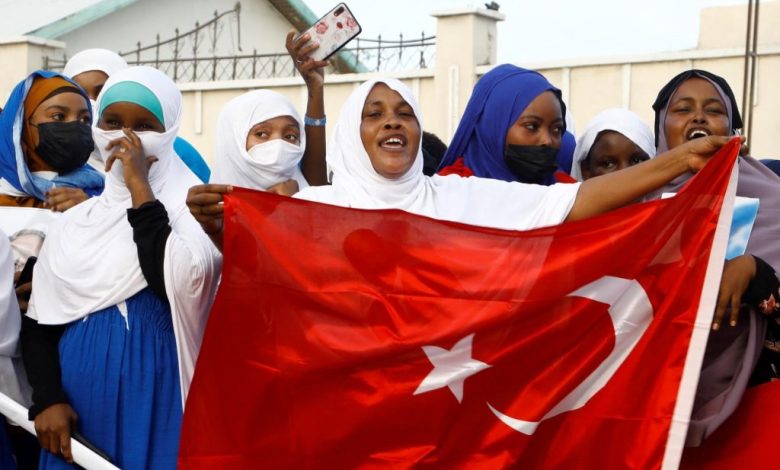Turkey’s Approach to Africa, Lessons for NATO (2-2)

Agencies – Sudan Events
As Turkey struggles with its own decades-long terrorism problem with the Kurdistan Workers’ Party—a Kurdish militant group which Turkey, the United States, and the European Union recognize as a terrorist organization—Ankara can empathize with its African partners who are facing their own challenges from terrorist groups. As these countries look to combat terrorism, Turkey exports lessons learned from its counterterrorism operations to its African partners.
Turkish companies have sold armored vehicles to African countries; the Turkish government has donated such vehicles to some countries as well. Troops in Kenya, Chad, and Somalia are pursuing terrorist groups with the help of these Turkish armored vehicles.
Additionally, Turkish drones hover over the African continent. An increasing number of African nations—including Niger and Ethiopia—are deploying Turkish unmanned aerial systems to conduct pinpoint strikes and collect intelligence on terrorist targets.
Several announcements from Turkish officials and improving Turkey-Africa relations suggest that the Turkish defence industry’s footprint in the continent might deepen in the future. Importantly, in contrast with some other countries arming African nations, Turkey’s military policy involves a high degree of cooperation, after-sale support, and other forms of assistance.
In addition to equipping the Somali Armed Forces with high-end Turkish weapons systems, Turkey also established a defense university, Camp TURKSOM, in Mogadishu in 2017 to train Somalia’s military. Such a university demonstrates that for Turkey and Somalia, their military relations rest on bolstering their joint capabilities (rather than simply a set of transactions), strengthening Somalia’s security, and fostering a common identity for the two nations’ armed forces. Additionally, Turkish military policy in Africa has remained mostly unchanged despite recent security challenges in the region and the open threats Ankara has received from terrorist organizations such as al-Shabaab.
Beyond its involvement in counterterrorism and capacity-building efforts in Africa, Ankara’s positioning in recent affairs in the region also differs from the positions taken by many other NATO countries. During the recent political turmoil in Niger, while some countries cut off or threatened to halt humanitarian aid, Turkey refrained from making bold claims on the matter. Later, Erdoğan opposed proposals for a military intervention in Niger and expressed hopes that the country could reach constitutional order and democratic governance soon. This noninterventionist stance seems closely tied to Ankara’s strategic objective to establish a long-lasting relationship with Niger—and to possibly secure the continuation of military-security cooperation deals signed between Ankara and Niamey (which involve the prospect of opening a military base in Niger) and protect Ankara’s investments in the country, which depend on Niger’s stability.
Moving forward, the steps NATO allies take in Africa will greatly shape the continent’s geopolitical orientation. As Western capitals are increasingly pushed to recalibrate their Africa strategies, Ankara’s approach—one that rests on the pillars of a careful mix of hard and soft power, capacity building, noninterventionism, and mutual cooperation—can provide lessons.
And while that process is underway, Turkey—whose political-military ties to the continent sit on strong foundations—can help counterbalance the growing footprint of NATO’s strategic rivals.



